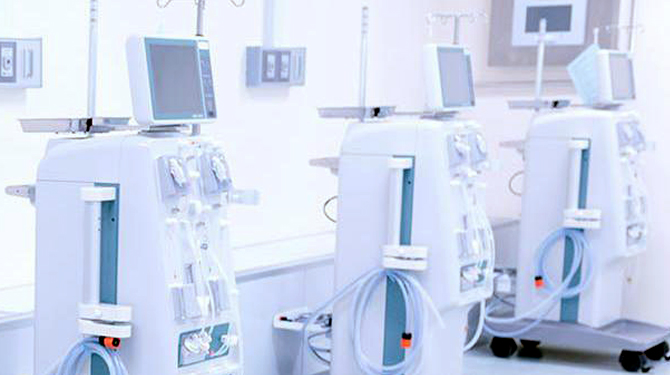Closures and Delayed Openings
To view our list of weather-related closures and adjusted hours, please visit our closings page.
 Dialysis is an important treatment for kidney disease and renal failure. When the kidneys can’t properly filter waste from the blood, dialysis can do the work for them so you stay well.
Dialysis is an important treatment for kidney disease and renal failure. When the kidneys can’t properly filter waste from the blood, dialysis can do the work for them so you stay well.
The dialysis specialists at Catholic Health understand that the dialysis process can be demanding. They want to make your experience as easy as possible by providing comprehensive care that is convenient and responsive.
Dialysis services at Catholic Health are provided in one location for your convenience and include:
Hemodialysis is most commonly used to treat advanced and permanent kidney failure. In hemodialysis, your blood flows a few ounces at a time through a special filter that removes wastes and extra fluids. The clean blood is then returned to your body.
Peritoneal dialysis (PD) is a process in which a soft tube, called a catheter, is used to fill your abdomen with dialysis solution, a cleansing liquid. Waste products and extra fluid pass from your blood into the dialysis solution that will pull wastes and extra fluid into the abdominal cavity. These wastes and fluid then leave your body when the dialysis solution is drained.
After you start receiving dialysis through your new access, we will follow up with you to ensure that your access stays healthy and usable. This includes monitoring and treating any blood flow issues or complications, and preventing vascular access problems. It is not unusual that an acute or urgent problem develops with your access; for example, an infection, clot, blockage, or excessive bleeding. Rest assured that we are ready to take care of these problems as well – usually on the same or next business day.
Before beginning dialysis, you will need to have a vascular access (the site on your body where the blood is removed, filtered and returned) created. We can usually create the vascular access in one visit. This visit takes about four to five hours and includes a consultation, an ultrasound and the placement of your vascular access for dialysis.
Once the vascular access is in place, it will need to heal for a few weeks before you can start your dialysis treatments. We will check that it is healing properly before you start dialysis.
Once you begin your dialysis treatments, you will schedule regular maintenance visits with us so we can ensure your vascular access stays healthy and usable. If you experience a complication with your vascular access, we can care for it immediately or the next business day.